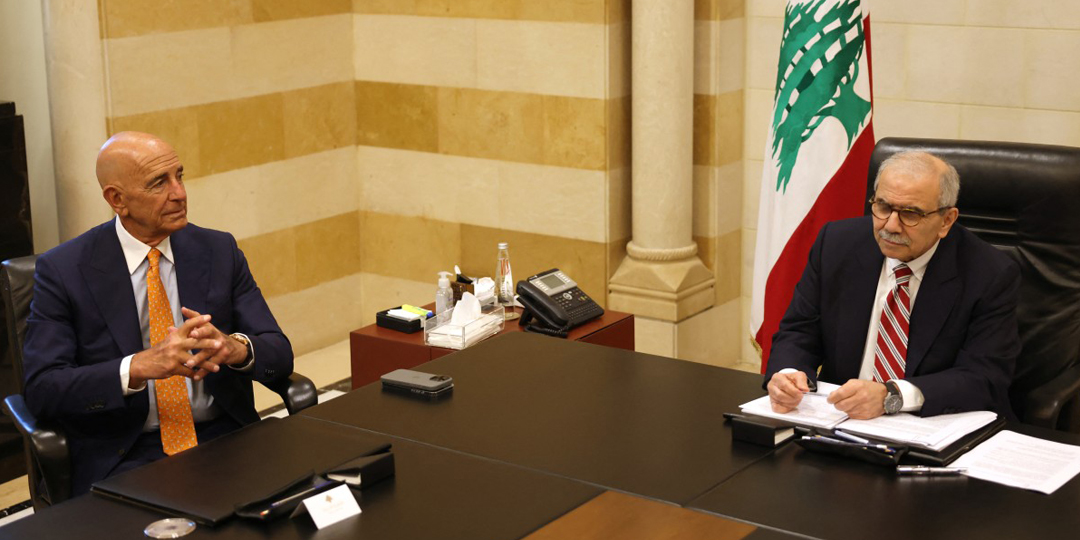Lebanese President Joseph Aoun played down the prospects of normalisation with Israel, for the time being, on Friday, while expressing hope for peaceful relations with the country which still occupies parts of southern Lebanon.
Aoun’s statement is the first official reaction to Israeli Foreign Minister Gideon Saar’s statement last week in which he expressed his country’s interest in normalising ties with Lebanon and Syria.
Aoun “distinguished between peace and normalisation”, according to a statement shared by the presidency.
“Peace is the lack of a state of war, and this is what matters to us in Lebanon at the moment. As for the issue of normalisation, it is not currently part of Lebanese foreign policy,” the president said in front of a delegation from an Arab think tank.
Lebanon and Syria have technically been at war with Israel since 1948, with Damascus saying that talks of normalisation were “premature”.
A Lebanese official, requesting anonymity due to the sensitivity of the issue, told AFP that Aoun was referring to a return to the 1949 armistice between the two countries, signed after the first Arab-Israeli war.
The official said Lebanon “remains committed to the 2002 Arab peace initiative,” which offers peace between Israel and Arab states in exchange for its withdrawal from territories it has occupied since 1967.
“No one, not the Americans or the Arabs, have raised to us normalisation with Israel,” they added.
The president called on Israel to withdraw from the five points near the border it still occupies. Israel was required to fully withdraw from southern Lebanon under a November ceasefire seeking to end its war with Iran-backed Hezbollah.
– ‘Civil peace’ –
Aoun said that Israeli troops in Lebanon “obstruct the complete deployment of the army up to the internationally recognised borders”.
According to the ceasefire agreement, Hezbollah must pull its fighters north of the Litani River, around 30 kilometres (20 miles) from the border with Israel, leaving the Lebanese army and UN peacekeepers as the only armed parties in the area.
The United States has been calling on Lebanon to fully disarm Hezbollah, and Lebanese authorities sent their response to Washington’s demand this week.
The response was not made public, but Aoun stated that Beirut was determined to “hold the monopoly over weapons in the country”.
The implementation of this move “will take into account the interest of the state and its security stability to preserve civil peace on one hand, and national unity on the other”, hinting that Hezbollah’s disarmament will not be done through force.
Hezbollah, a powerful political force in Lebanon, is the only non-state actor to have officially retained its weaponry after the end of Lebanon’s 15-year civil war in 1990, as parts of southern Lebanon were still under Israeli occupation at the time.
The Lebanese group was heavily weakened following its year-long hostilities with Israel, which escalated into a two-month war in September.
at/nad
© Agence France-Presse







